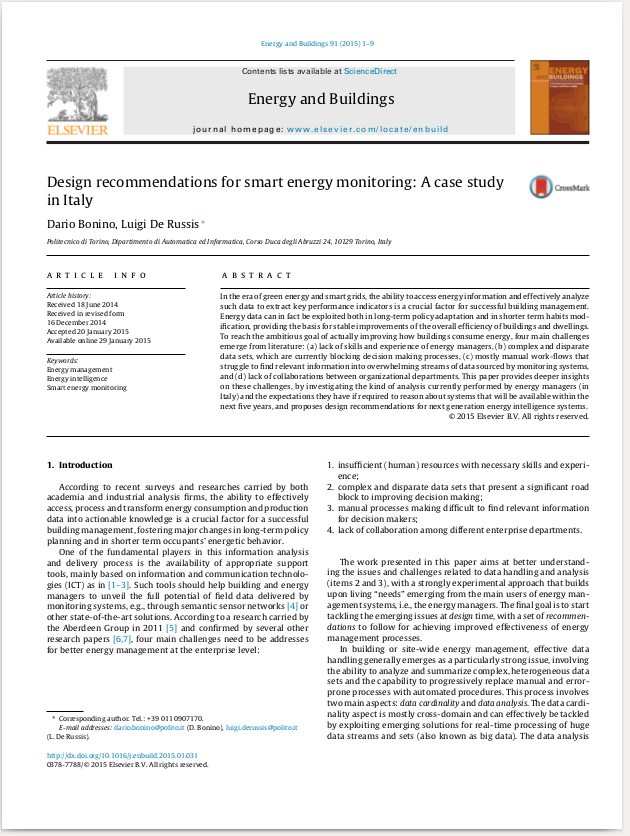In the era of green energy and smart grids, the ability to access energy information and effectively analyze such data to extract key performance indicators is a crucial factor for successful building management. Energy data can in fact be exploited both in long-term policy adaptation and in shorter term habits modification, providing the basis for stable improvements of the overall efficiency of buildings and dwellings.
To reach the ambitious goal of actually improving how buildings consume energy, four main challenges emerge from literature: (a) lack of skills and experience of energy managers, (b) complex and disparate data sets, which are currently blocking decision making processes, (c) mostly manual work-flows that struggle to find relevant information into overwhelming streams of data sourced by monitoring systems, and (d) lack of collaborations between organizational departments.
The paper "Design Recommendations for Smart Energy Monitoring in Italy: a Case Study in Italy", recently published in the Energy and Buildings journal (Elsevier), provides deeper insights on these challenges, by investigating the kind of analysis currently performed by Italian energy managers and the expectations they have if required to reason about systems that will be available within the next five years, and proposes design recommendations for next generation energy intelligence systems.


